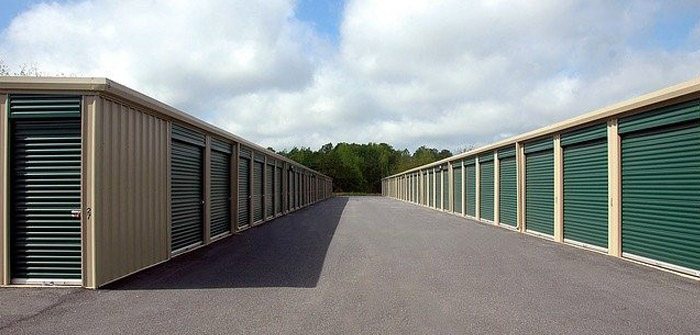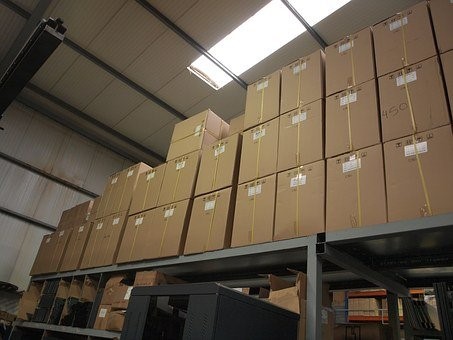With self-storage facilities, individuals can store their items or properties not used for a considerable number of years. People rent these storage units and pay monthly. They house items like vehicles, holiday decorations, wine bottles, art, furniture pieces, appliances, documents, boat components, etc. Property owners could even convert some storage facilities into high-end caves for housing male and female belongings.
Storage facilities, apart from being housing spaces, can be converted to a full-time business. The storage business holds lucrative opportunities for all investors and property owners alike. According to sparefoot.com, an estimated profit margin in the United States totals to about eleven percent. This profit margin is quite commendable as it beats the profit made by other small businesses.
Investors must also consider other factors before embarking on such a business venture. The profits generated sways most persons into establishing a self-storage business without applying the diligence to learn the self-storage business as a whole.
Here are some of the questions an investor should ask before embarking on establishing a self-storage business:
- What cost is involved in establishing a self-storage business
- What research should one do to build a successful business?
- What self-storage auctions are near me?
- Should the self-storage facility be built from scratch?
- What is the management cost necessary for effective operations?
- What marketing strategy is needed to get more clients and interested customers?
These questions are essential for growing a successful storage business. Let’s take an in-depth analysis of each question asked.
The Cost Involved in Setting Up a Self-Storage Business
Every business owner should understand the need to make accurate estimations of the capital needed. For a self-storage business, the investor has two options: building a new facility or purchasing an existing facility. The investor should have carried out some market surveys to know the costs involved in applying for any listed options.
The figures generated after the market survey would depend on the property’s location, cost of acquiring land, construction costs, and much more. Entrepreneurs must also factor the sources for generating such capital into planning. Some business owners may possess liquid assets that they can convert into cash for setting up other businesses.
In other cases, investors may derive means from personal property sales to meet the desired target. They may also consider taking loans from banks and financial institutions, as these are good options for generating funds.
With these in mind, the investor must think about the overall cost of management and operations. Hiring experts to manage your self-storage facility might be a practical decision to make.
Thus profits generated from the business are channeled into the payment of consultants. Some business owners prefer to manage their properties personally. The problem with this strategy is that the individual may not have the requisite knowledge on the legal terms and agreement holding such business, the rights, and privileges allocated by law to the customer.
Carrying Out a Feasibility Study
The development stage of a self-storage business doesn’t terminate at the scene of thoughts. Stakeholders will want to make efforts to back up ideas with facts and figures. The feasibility study reveals the rate at which the company can actualize business ideas.
There are several ways to carry out feasibility studies. On top of the list is the employment of a consultant skilled and experienced enough to derive accurate and unbiased figures on your business’s success rate.
Without patronage, a business has failed to meet up its primary duty. The feasibility studies help the investor determine the possibility of business failures and losses. It also tells the entrepreneur the number of profits expected at the end of the day. As some would call it, market research is a crucial step to establishing a self-storage business.
Experts prefer conducting studies within a five-mile radius away from the facility to see the customer’s reactions during the analysis. Other areas of consideration include:
- The current population in the environment of the facility’s location
- The estimated population growth in the coming years
- Heavy drive-by traffic (this parameter speaks well if the attraction of customers to the facility)
- The number of operational facilities around the landscape
- A general overview of the self-storage Industry
- Projections of income, expenditures, and property value
- Zoning of the storage facility.
Developing a Business Plan
Individuals shouldn’t embark on the storage business without a business plan. A business plan comprises different sections that reveal details about the company and shows a detailed road map to set out targets. No business becomes successful without a business plan. It shows the business’s high-end goals and the steps to be taken to reach those goals.
It also reveals the terms of the agreement so that partners and investors don’t get into fights over rights over profits and ownership. When writing a business plan, you can select many templates made available to best suit your business personality. The business plan for an existing facility completely differs from that of a newly developed storage property. Every phase of the business establishment comes with its own needs, reflecting in the business plan.
Essential components of a business plan include:
- Mission statement
- Vision statement
- Business structure
- Staff roles and responsibilities
- Ownership structure
- Market analysis
- Sources of capital
- Competitive analysis
- Revenue streams
- Pricing strategy
- Marketing and sales strategies
- SWOT analysis (strengths, weaknesses, opportunities, and threats)
An essential determinant of the analysis and projections made by a consultant is marketing. Globalization has introduced new and effective ways of carrying out marketing campaigns. The most effective tool used today is the internet. Customers can readily connect with buyers and property owners to negotiate the purchase of many storage facilities.
Smart technologies also ensure that investors can make payments for properties digitally—websites like passivestorageinvesting.com display several available properties and storage units for establishing storage businesses.
Conclusion
Self-storage business today has continued to thrive as efficient profit generators. They do not require so much expertise to establish but demand some information and research level. Due to the increasing demand for storage facilities, investors can boast of a stable source of income.





